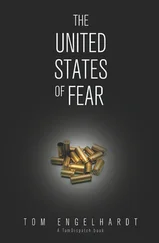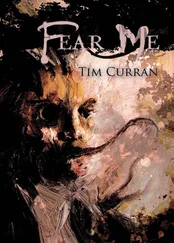I wrestled with the question of how to tell Mulligan, and I wrestled more, and finally I decided not to tell him at all. I decided that I would introduce Henry to the troupe as a Mexican. His skin was light enough for this to be plausible. I had heard Henry do his pidgin Spanish voice, which I thought was good enough to fool anyone who didn’t speak the language. I doubted that Mulligan, or anyone else in the troupe, knew Spanish. I would say that I had heard him playing on the street — that much was true enough — and had managed to convey to him my interest through sign language and a few Spanish phrases I had picked up in the circus.
It was an outlandish story, admittedly. But there was no question about our increasingly desperate situation as a troupe; Henry, in whatever guise, would inject new and necessary energy into our presentation and, I would gamble, attract fresh customers. I had no doubt that he would know what to do on a stage. I envisioned him in the old-style Sweeney type of costume — a phantasm of the earlier type of minstrel — a brilliant rustic among the mock sophisticates. If we could settle on the best way of introducing him, and then turn him loose, I was sure that he would be a sensation. And if we maintained the fiction that he was Mexican, then we could, if worse came to worst, claim ignorance that he was a Negro. We could remand him to the fates, if it came to that.
Armed with my provisional plan, I took Mulligan aside during the next afternoon’s specialty audition — dog tricks, this time. A half-dozen terriers, arrayed in a line, trained to bark out the rhythm of a handful of songs—“Old Folks at Home,” “Oh, Susannah,” and some others, disfigured more or less beyond recognition.
“Why do we need him?” was Mulligan’s first, and understandable, response when I presented the idea to him.
“We need something,” I said. “We need to set ourselves apart again. We are sinking. How many yodelers and bird trainers can we present?” I looked up at the stage, where Birch was cleaning up after a mess one of the dogs had bestowed upon our boards. “Or dog acts.”
“And why won’t he do a formal audition?”
“He is very shy, and embarrassed about his bad English. And anyway, he has auditioned for me, in effect. I’ll vouch for him.”
“And he will black up?”
“To be sure,” I said, keeping my face as blank as possible.
“And one song only?”
“Correct.”
Mulligan, watching my reactions, frowned and said, “Why the mystery, James?”
“I can’t tell you more. I have reasons.”
I watched him weigh the costs and benefits of pressing the point. “How would we introduce him?”
“I would think in the second half. .”
“Of course.”
“. . he could wander onstage while we were doing patter between tunes. Or I could be introducing Burke’s monologue. He could walk on, looking lost and mystified.”
Mulligan nodded. “And one of us will say, ‘ Why Brudder Neckbones, who’s dat nigger poking around in our yard? ’”
“Exactly,” I said.
“‘Maybe he’s dat chicken thief dey told us about, come from de next plantation!’”
“Yes,” I said. “General consternation, protests, mayhem.”
“That’s good,” Mulligan said. He emitted a short bark of a laugh, envisioning it. I was pleased to see him warming to the scenario so quickly. Then his face clouded over.
“What’s wrong?” I said. But I knew. “John, this fellow is no Mulligan. The rest of the line can say, ‘ Bullfrog, is you gonna take dat sittin’ down? Show him! ’ And then you wash away the memory of him. Yes?”
“And afterward, something on the order of, ‘ Nobody beats Bullfrog! ’ I must prevail.”
“Little question of that,” I said.
“We’ll need to rehearse this,” he said.
This was impossible to do without Henry’s identity being revealed. “I would prefer not to,” I said.
Mulligan watched me, silently. At length he said, in a calm voice, “James. What are you about, here? Is he a criminal? What is the idea?”
“He is no criminal,” I said, remembering that I had no idea if this were true. “Please trust me. We can give the boys the scenario in general terms; we can improvise dialogue on the spot. There are reasons for keeping it a surprise.” I looked hard at him. “Everyone will benefit. If it does not work out, we have the opera singer on tap, don’t we? What was her name?”
“Gloria.”
“Gloria,” I repeated. “My God, do you remember Fatima, from Kimball’s?”
“Fatima?” he said, as if I had just awakened him. “Fatima. . Oh God, of course. I still. .” He shook his head.
“Let’s keep our spirit of adventure alive, shall we?”
He nodded, looked as if he were about to speak. At that moment, Birch interrupted us and the discussion was tabled, but I took it as a tacit assent.
I was elated. But, like a splinter just beneath the surface, something nagged at me. I was now keeping a secret from my closest associate and, in truth, the only person I could remotely call a friend. I was discovering a vein of recklessness in myself that quite surprised me, as if an entirely different person were inside, using me as a disguise. It was not an altogether unpleasant sensation. But it was disquieting, as if a lost relative had shown up with a dubious proposition. We were up against it, was what I told myself.
On the appointed day, Henry showed up at my apartments, his straw hat replaced by a woolen slouch cap pulled low over his eyebrows, which he kept on after he was inside, until I reminded him to remove it.
“Welcome,” I said.
“Good,” he said, looking around the room somewhat nervously. “Thank you.”
“Would you like some lemonade?” I said. Mrs. Callahan had prepared some and kept it in a shared icebox.
He raised his eyebrows and nodded his head, and I left the room to get us a couple of glasses. When I returned with the glasses of lemonade, he was standing in the same place where I’d left him, still holding his banjo in its bag. I told him to set the banjo down and have a seat on the divan.
Gradually he relaxed enough to maintain his side of a modest volley of conversation. He asked if I owned the house where we were, and I told him that I only rented it. He wanted to know if I had lived there for a long time, and I told him it had been about three years.
He had plainly been raised well. He had, in fact, an air of affronted nobility, which both attracted me and aroused a certain resistance. He was at no great pains to please. As we made small talk he emitted amusing sayings. Unsure whether he had heard some remark I had made, I repeated myself, and he said, “I heard you twice the first time.” At one juncture I asked if he had ever seen Sweeney perform — I was trying to find out where he had acquired his prodigious repertoire — and he responded, “We went to different schools together.” I never did determine where he had picked up his repertoire.
When it was time to start playing music, we sat facing one another on two straight chairs. As we got ourselves arranged, he became completely focused on the task. I brought out both my pairs of bones, one pair for each hand, and waited for his banjo to meet his strict requirements. I had the sense that the building could have been destroyed by an earthquake while he tuned, and it would not have made any difference to him.
Hearing him play on the street was thrilling, but actually playing with him was an experience of another order entirely. He knew all the songs that were standard fare for the minstrels, and dozens — perhaps many dozens — more. From the beginning of any song he would add tiny elements, grace notes, instant echoes of some errant accent I played upon the bones. He had a manifest horror of repeating himself, and any given song would change aspect constantly as it went along, while yet remaining recognizable. He brought out an adventurous spirit in me, and I would try to match him arabesque for arabesque, turn for turn. He played with his eyes closed much of the time, except when our ideas for variation would meet in an especially felicitous manner, and then he would look at me and nod. I think it is safe to say that I had never felt such a combination of concentration and freedom.
Читать дальше










